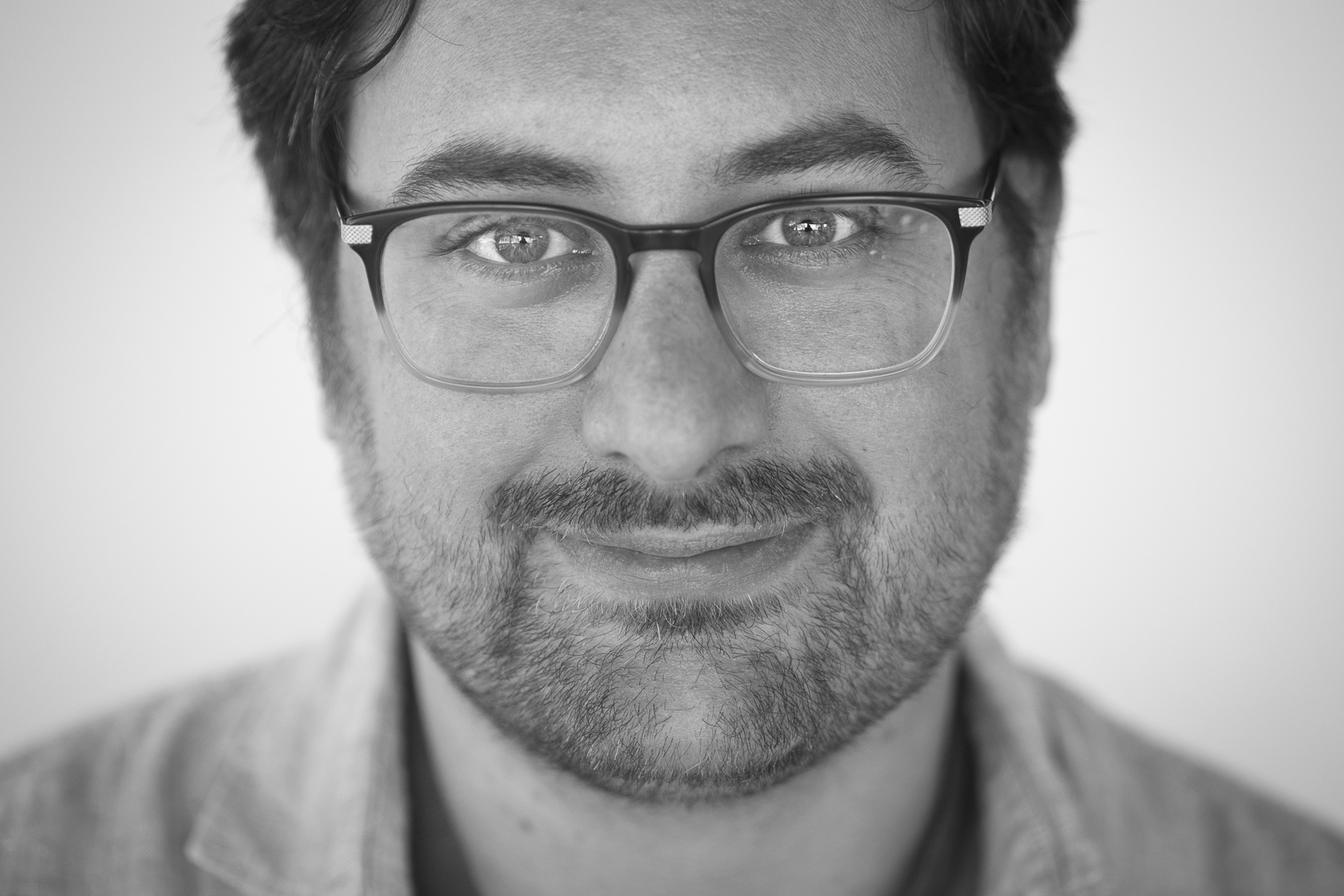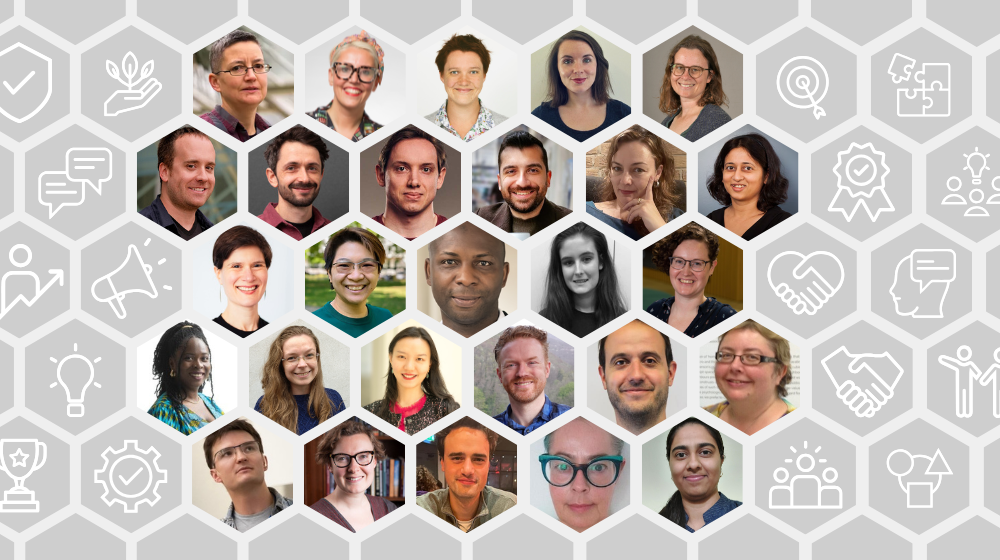The SSI Fellowship Programme supports passionate individuals in research and software, empowering them as ambassadors of good practice to shape the future of research software. The selection process for this year’s cohort has now ended and we’re excited to introduce the 2025 Fellows and share their inspiring plans.
For the 2025 cohort, we received 69 applications from 43 institutions, spanning 40 research areas and 11 countries. After rigorous review — 207 assessments by 29 reviewers, mostly Fellows — we shortlisted 36 candidates.
The shortlisted applicants participated in our Online Selection Day, featuring group discussions and event planning activities that tested collaboration, communication, and contribution. Based on these activities and initial scores, 27 exceptional new Fellows were selected to join the Fellowship Programme.
Insights from the 2025 Selection
This year’s recruitment cycle brought plenty of exciting developments, as well as some areas where we still have room to grow:
- Improving support: We’ve worked hard to improve support for prospective applicants by updating our website for full transparency, sharing eligibility criteria and, for the first time, the shortlisting and online selection day criteria. We also hosted an Online Launch Webinar with 180 registrants, organised three Ask Me Anything sessions, and received invaluable support from 10 current Fellows who dedicated their time to assist applicants with their plans.
- Broadening horizons: The 2025 cohort includes Fellows from nine institutions that had never been represented before. We also welcomed Fellows from previously underrepresented fields in the Fellowship Programme, including the creative sector, GLAM (Galleries, Libraries, Archives, and Museums), Subjects Allied to Medicine, and Social Studies.
- Gender and career trends: While most applicants are men, women and nonbinary candidates had higher success rates in the selection process, making up 66% of selected Fellows. Mid-career researchers made up the largest and most successful group, but we’d love to see more junior and early-career researchers apply in future years.
- RSEs leading the way: Nearly half (42%) of shortlisted candidates are RSEs, with another 17% holding roles like data steward or application specialist. While it’s encouraging to see these critical roles gaining recognition and confidence to step into leadership positions, it’s important to emphasise that the Fellowship Programme is open to a wide range of applicants from all backgrounds (including researchers who code to those who are advocates and supporters of better software practice whether they code or not).
Driving Innovation: The Plans of the 2025 SSI Fellows
The new Fellows have exciting plans that showcase the wide impact of the Fellowship Programme. They’re building diverse Communities of Practice (CoPs) focused on areas like the FAIR principles, high-performance computing, LGBTQ+ networks in the R community, and collaborations between artists and AI researchers.
The new cohort of Fellows also aims to boost open-source contributions, upskill GLAM professionals, and develop tools for environmental monitoring and historical map digitisation. Their global collaborations span Finland, the UK, and Asia, while addressing mental health and inclusivity in the RSE community. Their projects cover AI ethics, sustainable software repositories, and taxonomic research tools, all advancing research software and open science.
| (The new 2025 Fellows are listed here in alphabetical order by first name) |
Bridging the gap between microscopists and research software engineers to foster collaboration and innovation. |
Exploring the culture of open source contributions in academia. |
Developing the Pre-seeds (Research 101) course to make research education accessible and foster diversity in the Research Software Engineering community. |
Improving collaboration and software sustainability in clinical microbiology. |
Nurturing rainbowR: a Community of Practice for LGBTQ+ folks who code in R. |
Facilitating contributions of both paid and volunteer contributors to the Turing Way. |
Building a Community of Practice to connect artists and AI researchers through conferences, publications, and seminars, promoting collaboration and best practices. |
Establishing a Community of Digital Humanities Research Software Engineers in the Midlands. |
Boosting research reproducibility with short, accessible talks on software tools like Git, while fostering a collaborative community around effective software practices in academia. |
Investigating how the publication of research driven by software could be improved, in line with becoming more FAIR. |
Leading workshops on the development of open source hardware for environmental monitoring. |
Building AI resilience within the RSE community. |
Investigating the Research Software Engineering (RSEng) landscape in Asia. |
Building a community and long-term sustainability plan for the MapReader software library. |
Establishing a community around Cloud-Native technology and its uses. |
Investigating the possibilities and limitations of co-developing a social science visual research informed model that allows for the classification of large batches of photographs. |
Advocating for mental health in the RSE community and other similar professions through resources, initiatives, and open conversations. |
Empowering Communities of Practice focused on "Collections as Data" with educational resources on the sustainability of software tools supporting datafication. |
Building a community focused on defining what software tools we need to use digital specimen data to accelerate taxonomic research to describe the world's plant species and protect them from threats. |
Establishing a Community of Practice for Open Source tools in animal behaviour with training for early-career researchers. |
Growing the RSE Competencies Toolkit for digital humanities and GLAM sectors while exchanging knowledge with life sciences. |
Promote and enhance the activities of the Physiopy community. |
Establishing a community of practice on Reasonable Performance Computing, dedicated to the research, development and advocacy of performance best practices. |
Leveraging AI and NLP to develop tools that enhance the FAIRness of software repositories, while fostering a collaborative community to advance repository analysis and usability in research. |
Growing the RSE community in Finland by bringing people together, sharing ideas, and learning from others to support better research software practices. |
Leading a brainstorming workshop on collection and use of non-pharmaceutical data for epidemiology. |
Expanding FAIR training, connecting research technical professionals (RTPs) and showcasing RTP careers, and hosting a national event to advance FAIR data in musculoskeletal research. |
Challenges and Opportunities
While we’re celebrating this year’s successes, we’re also reflecting on where we can improve:
- Improving diversity: While applications show a trend of increased ethnic diversity, the percentage of applicants from mixed, multiple, and other ethnic groups decreases during shortlisting and selection. We are reviewing our selection procedures to identify any barriers and make sure we are working towards making our processes more fair and inclusive, reflecting the diversity we aim to support.
- Reaching new disciplines: While Computer Sciences remains dominant, we’ve seen a dip in Biological and Physical Sciences applications, and continue to see underrepresentation from the Social Sciences. On the other hand, our outreach to the Arts and Humanities has paid off, with strong representation from that group in this year’s cohort. Expanding our efforts to engage other underrepresented fields for future calls will help build a more diverse and multidisciplinary Fellowship Programme that addresses the full range of research software needs.
- Refining evaluation: We’ve seen differences between shortlisting scores and final selections, indicating that our evaluation criteria could be clearer and more consistent. To address this, we’re exploring ways to refine our processes to ensure that the most promising candidates are selected. This review will help strengthen the robustness and transparency of our selection process, ensuring that it accurately reflects the potential and contribution of each applicant.
Looking Ahead
The SSI Fellowship Programme is about more than just professional development. It’s about building a dynamic, supported, and inclusive research software community. The 2025 cohort embodies this mission with their diverse backgrounds, ambitious projects, and commitment to making a difference.
To our new Fellows: welcome to the SSI community! We can’t wait to see how your work takes shape and the positive change you’ll inspire.
To everyone else: keep an eye out for updates on these exciting projects and if you’re interested in what they are doing consider getting in touch via fellows-management@software.ac.uk. If you’re passionate about research software, think about applying next year. Together, we can shape the future of sustainable, inclusive, and innovative research software.


